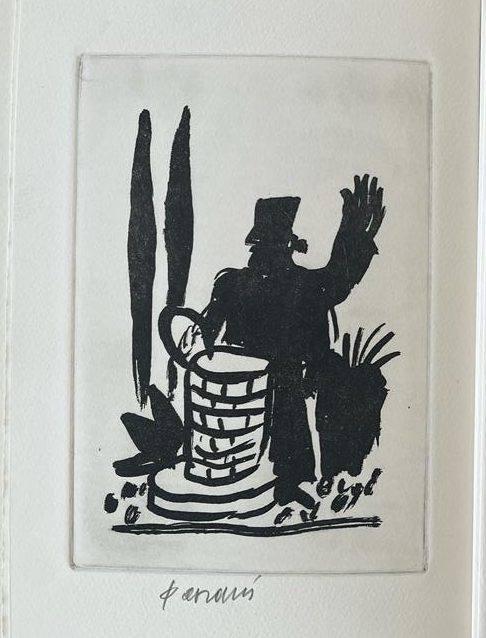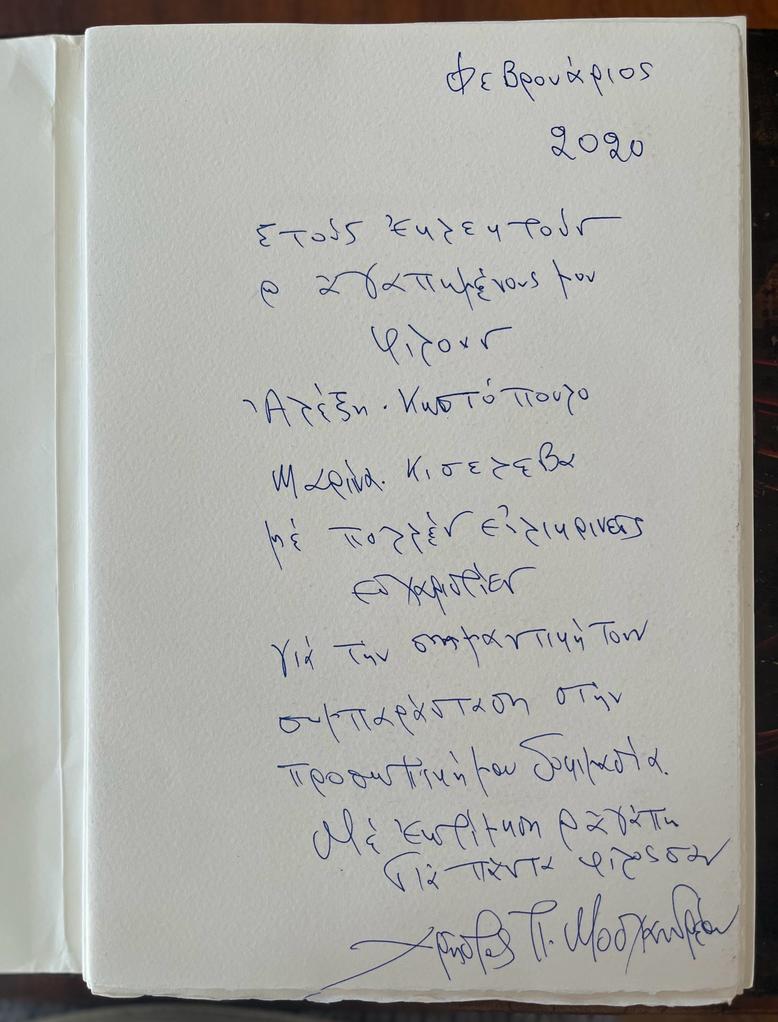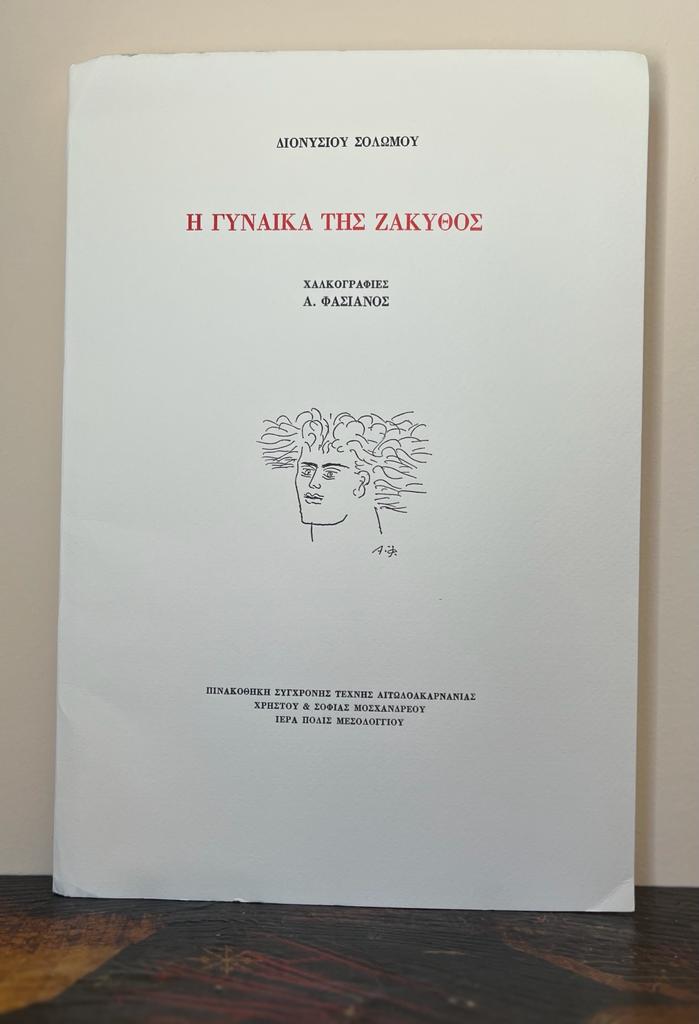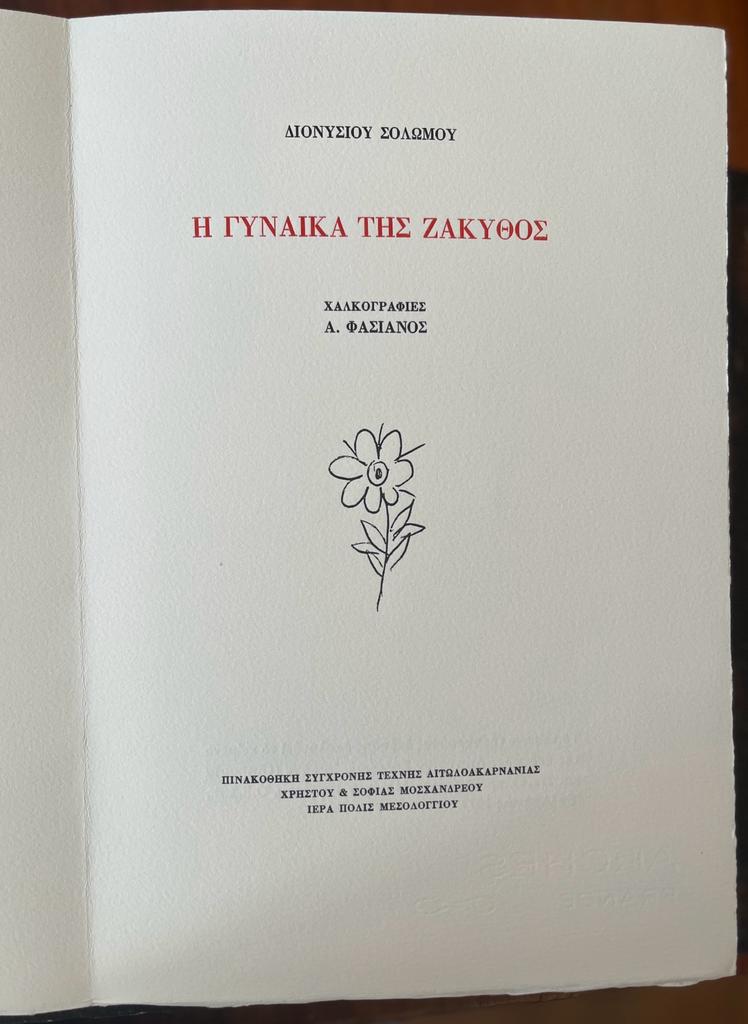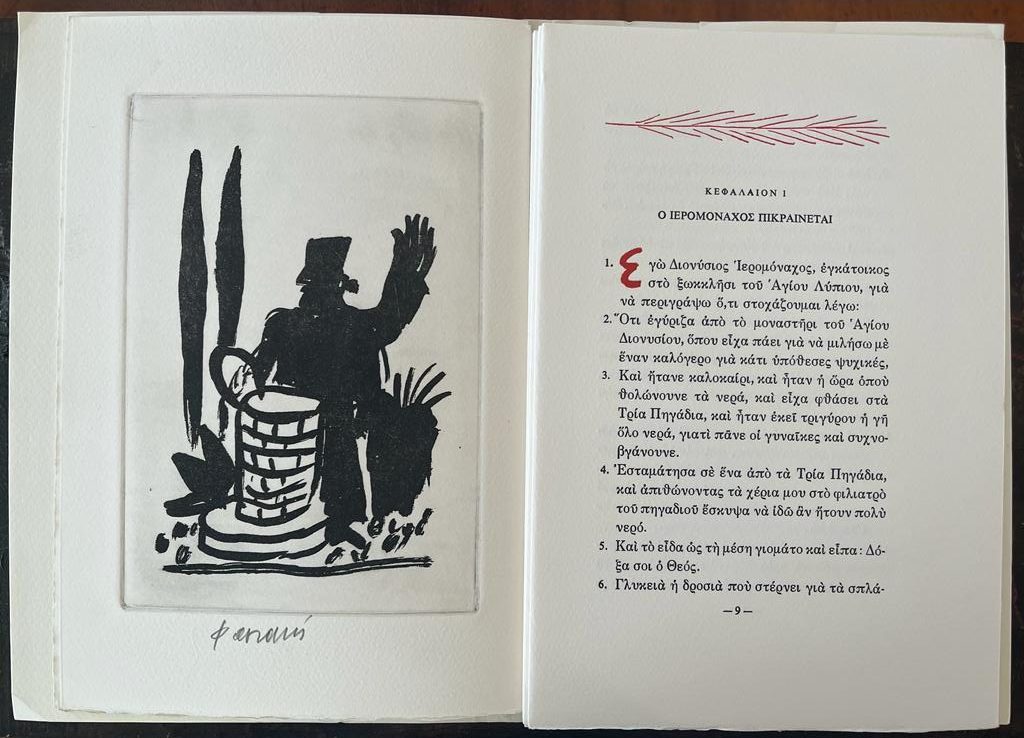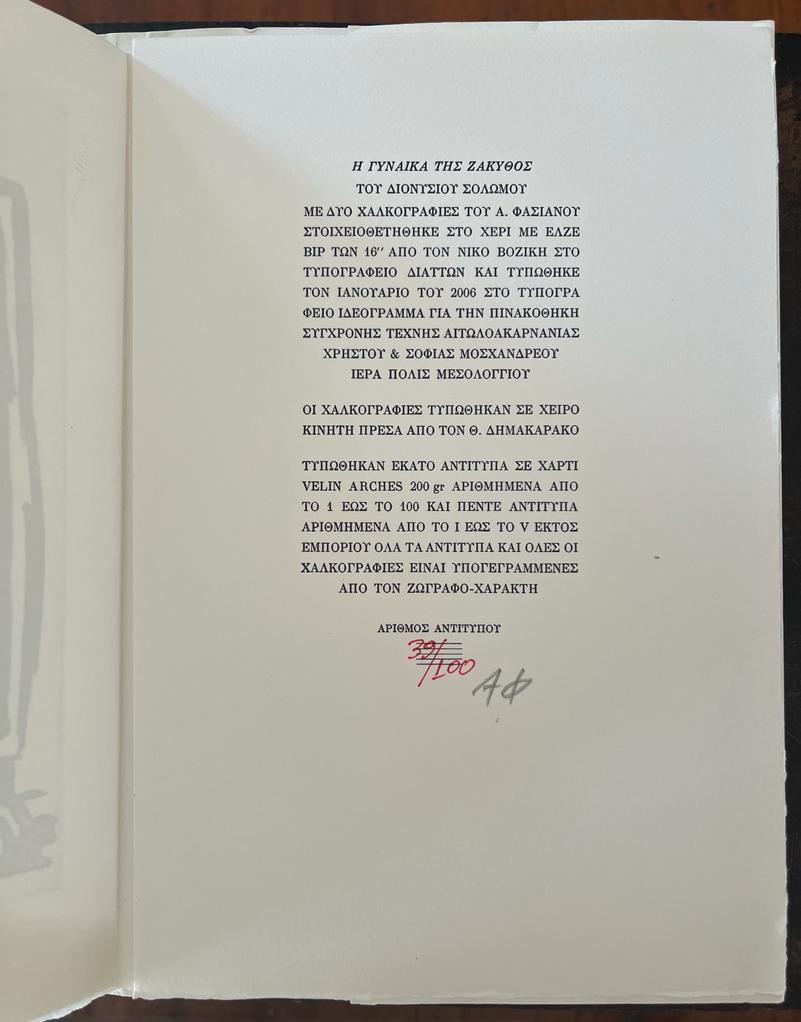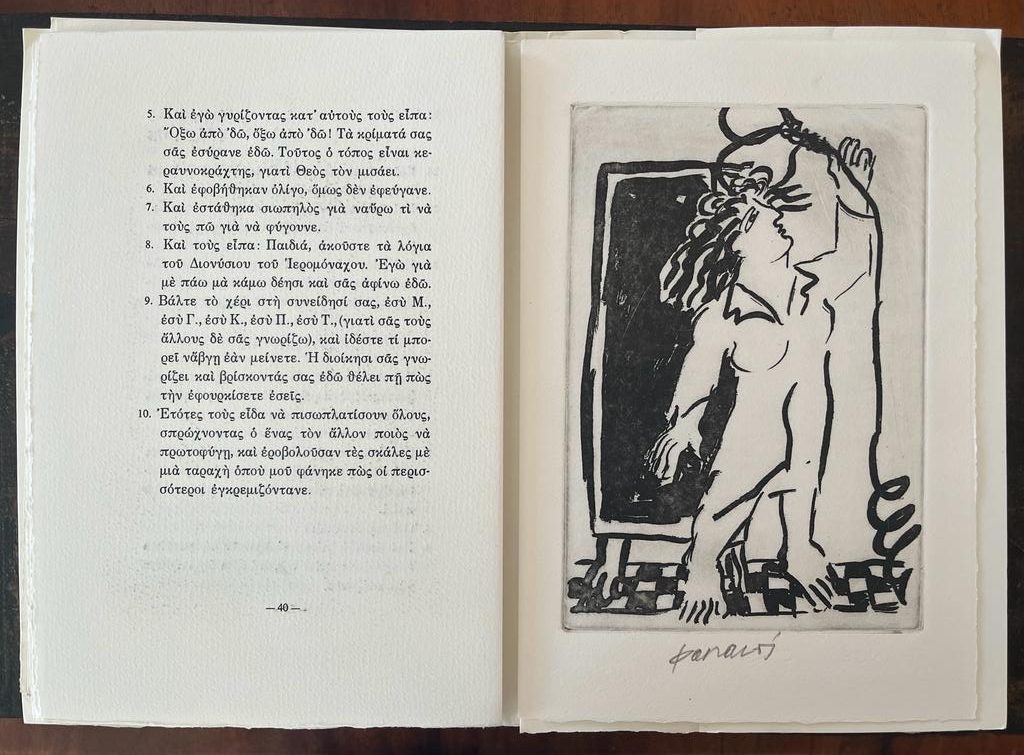Dionysios Solomos, The Woman of Zakynthos, I Yineka tis Zakythos, 2 Hand Signed Copperplates of Alekos Fassianos, 1/100 Copies
400.00€
Dionysios Solomos (Greek: Διονύσιος Σολωμός 1798 –1857) was a Greek poet from Zakynthos, who is considered to be Greece’s national poet. He is best known for writing the Hymn to Liberty (Greek: Ὕμνος εἰς τὴν Ἐλευθερίαν, Ýmnos eis tīn Eleutherían), which was set to music by Nikolaos Mantzaros and became the Greek and Cypriot national anthem in 1865 and 1966 respectively. He was the central figure of the Heptanese School of poetry. He is considered the national poet of Greece, not only because he wrote the national anthem, but also because he contributed to the preservation of earlier poetic tradition and highlighted its usefulness to modern literature. Other notable poems include Ὁ Κρητικός (The Cretan), Ἐλεύθεροι Πολιορκημένοι (The Free Besieged). A characteristic of his work is that no poem except the Hymn to Liberty was completed, and almost nothing was published during his lifetime.
Alekos Fassianos (Greek: Αλέκος Φασιανός, 1935 – 2022) was a renowned Greek painter. He gained recognition for his distinctive style, which was characterized by immediacy and a deliberate departure from standardized painting techniques.
Out of stock
Description
Διονύσιος Σολωμός
Η Γυναίκα της Ζάκυθος
με 2 υπογεγραμμένες Χαλκογραφίες Α. Φασιανος 1 από 100 υπογεγραμμένα αντίτυπα
Dionysios Solomos
The Woman of Zakynthos
With 2 Hand Signed Copperplates by Greek Artist Alekos Fassianos Printed in Missolongi in 1977
Contemporary Art Gallery of Christos and Sofia Mashandreou
One out of 100 Copies, here: 39
Hole page handwritten dedication by Christos Moschandreou
The book is also signed by Alekos Fassianos
Dimensions: 29cm x 20cm
Original paper binding with loose Double Pages (44 pages)
The Woman of Zakynthos (Η Γυναίκα της Ζάκυθος), a complex and pioneering literary work, is considered by many Dionysios Solomos’ masterpiece. Composed in the style of biblical verse and divided in numbered chapters, each one bearing a title, and sections, The Woman of Zakynthos combines satire with the grotesque, lyrical elements with the sublime. As it constantly refers to the polarity between good and evil, Solomos’ work touches upon personal and national experience, as well as upon nineteenth-century Greek politics and social realities. The main characters are the anonymous Woman of Zakynthos and the narrator, monk Dionysios, who invites the reader to experience his visions and prophetic revelations.
Additional information
| Languages | Greek |
|---|

